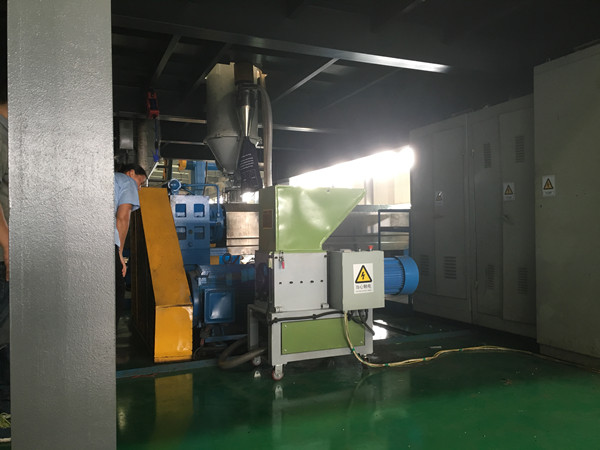The Vital Role of Plastic Recycling Grinders in the Fight Against Plastic Pollution
Plastic waste is one of the biggest environmental challenges we face today. Millions of tons of plastic waste are generated each year, with much of it ending up in our oceans and waterways, harming marine life and ecosystems. To address this issue, plastic recycling has become an important part of the solution. However, to recycle plastic waste effectively, it must be processed into small particles, which is where plastic recycling grinders come in.
Plastic recycling grinders are machines that grind plastic waste into small particles or flakes that can be reused in the production of new products. These grinders come in various sizes and capacities, from small machines that can process a few kilograms of plastic waste per hour to large industrial grinders that can process hundreds of kilograms per hour.

The process of recycling plastic waste begins with sorting the waste into different types of plastic. The sorted plastic is then washed and shredded into small pieces before being fed into the grinder. The grinder uses rotating blades to break down the plastic waste into even smaller particles, which can then be melted down and used to make new products.
One of the key advantages of plastic recycling grinders is that they reduce the amount of plastic waste that ends up in landfills or the environment. By recycling plastic waste, the demand for new plastic is reduced, which means less plastic waste is produced. Additionally, recycling plastic waste saves energy and resources, which can help to reduce carbon emissions and the overall environmental impact of plastic production.
Another advantage of plastic recycling grinders is that they can help to create jobs and economic opportunities in the recycling industry. As the demand for recycled plastic increases, more companies are investing in plastic recycling technologies, creating new jobs and economic opportunities for people in the recycling industry.
Plastic recycling grinders also play a crucial role in improving the quality of recycled plastic. By grinding plastic waste into small particles, the grinder can remove any contaminants or impurities in the plastic, such as dirt, food residue, or other non-plastic materials. This helps to ensure that the recycled plastic is of high quality and can be used to make new products.
Despite the numerous benefits of plastic recycling grinders, there are also some challenges associated with their use. One of the biggest challenges is ensuring that the plastic waste is properly sorted and cleaned before being fed into the grinder. Contaminants or impurities in the plastic waste can cause the grinder to break down, leading to increased maintenance costs and downtime.
Another challenge is the high cost of purchasing and maintaining a plastic recycling grinder. These machines can be expensive, particularly for smaller recycling facilities or businesses that are just starting out. Additionally, the maintenance and repair costs of these machines can be significant, particularly if they are used frequently.
In conclusion, plastic granulators machine are essential tools in the fight against plastic pollution. They help to reduce the amount of plastic waste that ends up in landfills or the environment, create jobs and economic opportunities in the recycling industry, and improve the quality of recycled plastic. While there are some challenges associated with their use, the benefits of plastic recycling grinders far outweigh the costs. As the demand for recycled plastic continues to grow, it is likely that plastic recycling grinders will become even more important in the years to come.

Comments
0